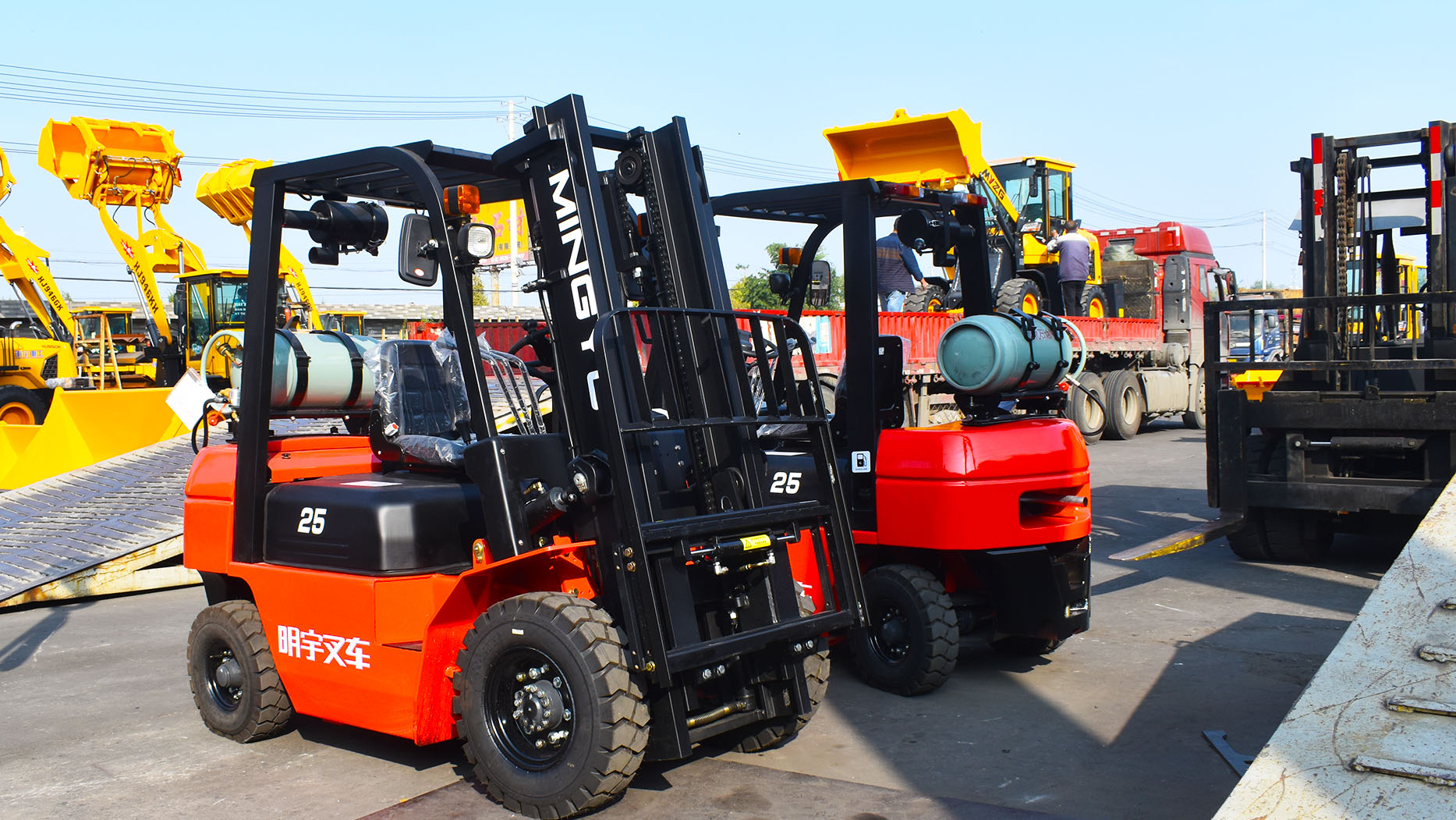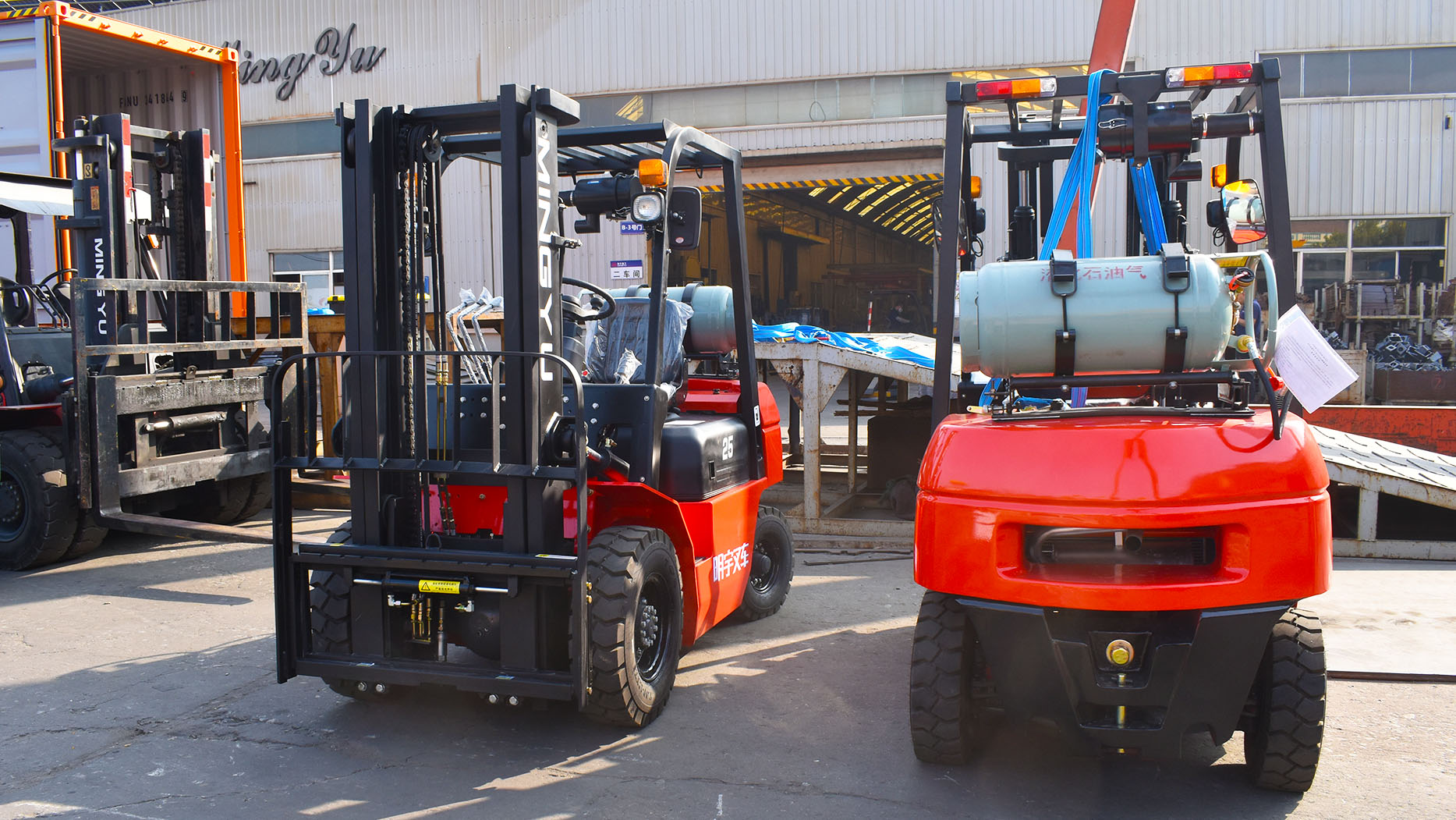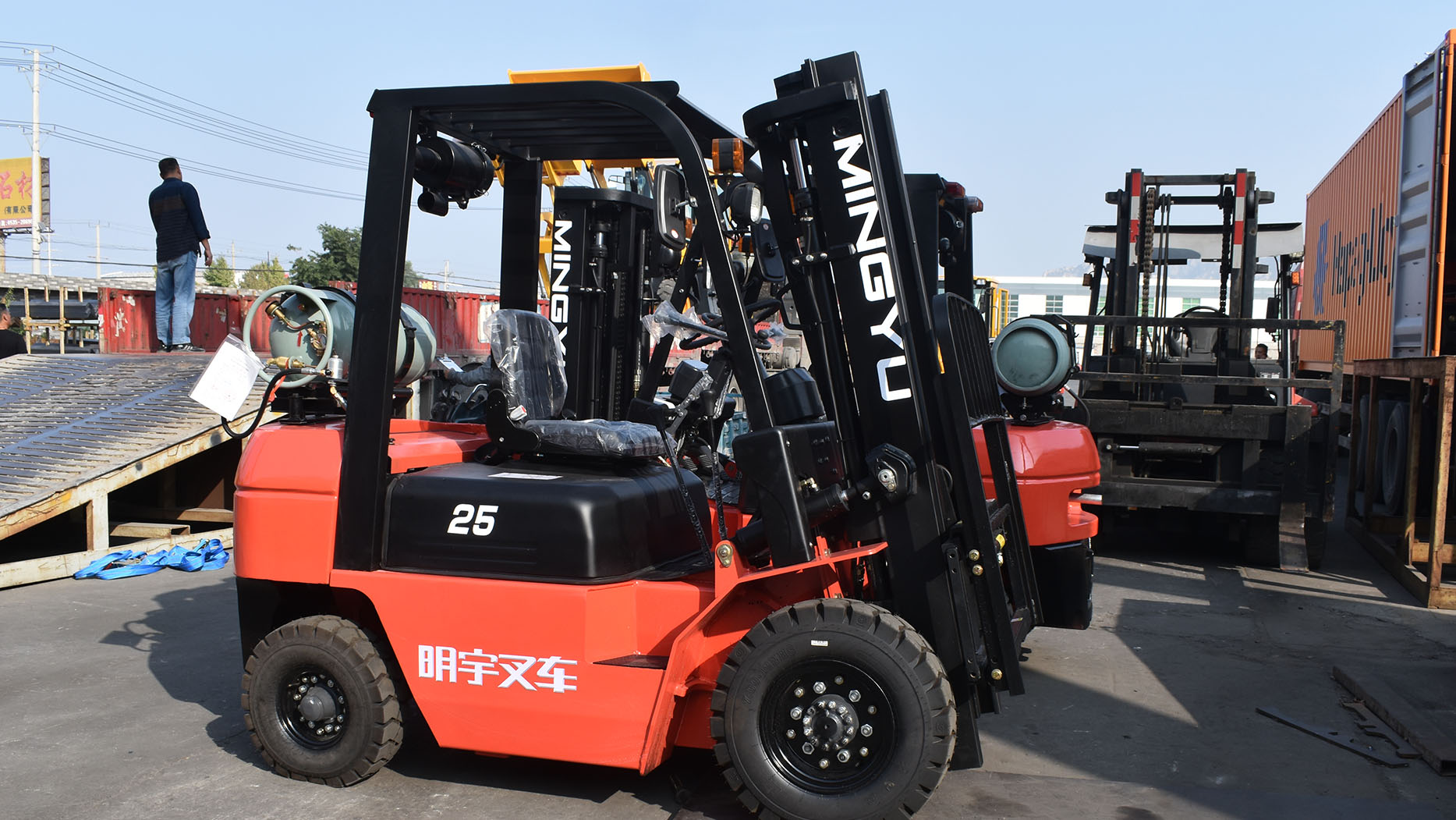In the bustling world of logistics, manufacturing, and warehousing, forklifts are indispensable workhorses. From the compact agility of a warehouse series stacker to the brute force of a rough terrain truck, these machines are the backbone of material handling. While many are familiar with diesel and electric models, a common question arises regarding internal combustion engine (ICE) forklifts: Why does the forklift I use often run on propane (LPG) and not gasoline? The answer lies in a blend of operational efficiency, environmental considerations, safety protocols, and economic advantages that make liquefied petroleum gas (LPG) the preferred fuel for many industrial applications, especially when comparing it directly to gasoline.
Shandong Zhuogong Machinery Co., Ltd., a competitive enterprise group in China's small heavy machinery industry since 1996, offers a wide array of solutions, including robust LPG & gasoline forklifts available through platforms like My-Forklift.com. Their product range underscores the industry's need for versatile and efficient machines, adapting to varied operational demands. Understanding the nuances between these two fuel types is crucial for optimizing fleet performance and ensuring compliance with modern industrial standards.

The Rise of Propane (LPG) in Forklifts
Propane forklifts, also known as LPG forklifts, have steadily gained popularity over traditional gasoline forklifts for several compelling reasons. LPG is a cleaner-burning fuel, consisting mainly of propane and butane, stored under pressure as a liquid. When released, it vaporizes and is combusted in the engine.
Key Advantages of Propane (LPG) Forklifts:
Cleaner Emissions for Indoor Use:
Perhaps the most significant advantage of LPG forklifts is their lower emission profile compared to gasoline. Propane combustion produces significantly fewer harmful pollutants, such as carbon monoxide (CO), nitrogen oxides (NOx), and hydrocarbons. This makes LPG forklifts far more suitable, and often mandated, for indoor operations within warehouses, factories, and other enclosed spaces where ventilation might be a concern. Operating a gasoline forklift indoors without extremely robust ventilation poses serious health risks due to the exhaust fumes. This cleanliness is a major driver for companies choosing LPG, especially when considering the health and safety of their workforce.
Consistent Power Output:
Propane fuel delivers consistent power throughout the fuel tank's lifespan. Unlike gasoline, which can sometimes degrade or vary in quality, LPG provides a steady, reliable energy source, ensuring optimal forklift performance from the beginning of a shift to the end. This consistency contributes to more predictable operation and less wear and tear on the engine due to uneven power delivery.
Convenient Refuelling:
LPG forklifts benefit from extremely convenient refuelling. Swapping an empty propane tank for a full one is a quick process, typically taking only a few minutes. This minimizes downtime and maximizes productivity, especially in operations that run multiple shifts. There's no need for a dedicated fuel pump or prolonged waiting for a full tank, unlike electric forklifts that require hours for recharging or diesel models that need access to bulk fuel. My-Forklift.com's focus on operational efficiency would certainly highlight this benefit for their LPG & gasoline forklift models.

Lower Fuel Costs & Engine Longevity:
While the price of propane can fluctuate, it often provides a more stable and sometimes lower cost per gallon compared to gasoline for industrial consumption. Furthermore, because propane burns cleaner, it leaves fewer carbon deposits in the engine, leading to less wear on engine components. This can result in extended engine life and reduced maintenance costs over the long term, offering a significant economic advantage for fleet managers.
Versatility and Outdoor Capability:
While ideal for indoor use due to their cleaner emissions, LPG forklifts are equally capable of operating outdoors, making them highly versatile. They perform well in various weather conditions and on different terrains, offering a flexible solution for mixed indoor/outdoor operations. This contrasts with purely electric models that might struggle with range or power in continuous outdoor applications without frequent recharging.
The Case for Gasoline Forklifts: Niche Applications
While LPG forklifts hold many advantages, gasoline forklifts do have their place, albeit in more specialized or less common scenarios today.
Key Characteristics of Gasoline Forklifts:
Lower Initial Purchase Cost:
Generally, a gasoline forklift might have a slightly lower upfront purchase price compared to an equivalent LPG model. This can be a factor for businesses with very tight initial budgets.
Fuel Availability (Historical):
Historically, gasoline was ubiquitous and easily accessible. However, for industrial operations, bulk LPG delivery and on-site tank storage are now equally, if not more, convenient.
Disadvantages of Gasoline Forklifts:
Higher Emissions: As discussed, gasoline combustion produces significantly higher levels of pollutants, making them unsuitable for most indoor applications.
Less Fuel Efficiency: Gasoline engines often consume more fuel per hour of operation compared to LPG engines in similar duty cycles.
Fluctuating Performance: Gasoline quality can vary, and its combustion can be less consistent, potentially leading to varied engine performance.
Fuel Storage Concerns: Storing large quantities of gasoline on-site can present greater fire hazards and environmental risks compared to LPG cylinders.

The Hybrid Solution from My-Forklift.com: LPG & Gasoline Forklifts
It's important to note that many manufacturers, including Shandong Zhuogong Machinery, offer "LPG & gasoline forklifts." These are often dual-fuel forklifts that can switch between propane and gasoline with the flick of a switch. This design provides maximum flexibility for operations that might occasionally need to operate in environments where one fuel type is unavailable or impractical, or where a specific job dictates the use of one over the other.
This versatility allows businesses to adapt their material handling capabilities without investing in two separate machines. For example, a forklift might start its day on gasoline outdoors for heavy lifting, then switch to LPG to move materials inside a production facility, highlighting the commitment of companies like My-Forklift.com to providing adaptable and efficient solutions to their customers.
Environmental and Regulatory Considerations
The shift towards LPG forklifts is not just about operational benefits; it's also driven by increasing environmental regulations and a global push for sustainability. As air quality standards become stricter, particularly in urban and industrial zones, the cleaner-burning nature of propane makes it a compliant and responsible choice. Companies are increasingly scrutinized for their carbon footprint, and adopting LPG forklifts can contribute positively to their environmental impact assessments.
Conclusion: A Strategic Fuel Choice for Modern Industry
In summary, the pervasive presence of propane forklifts in industrial settings, particularly when compared to gasoline models, is a testament to their superior balance of performance, environmental responsibility, and operational cost-effectiveness. While gasoline forklifts may offer a lower initial entry point, the long-term benefits of LPG, including cleaner emissions suitable for indoor use, consistent power delivery, convenient refuelling, and potentially lower maintenance costs and extended engine life, solidify its position as the preferred choice for a vast majority of material handling applications.
Manufacturers like Shandong Zhuogong Machinery Co., Ltd., through their extensive range of forklifts including the versatile LPG & gasoline forklifts showcased on My-Forklift.com, continue to innovate and provide solutions that empower businesses to make informed fuel choices that align with their operational needs, safety standards, and environmental goals. Choosing the right fuel type is a strategic decision that profoundly impacts productivity, safety, and the bottom line in the dynamic world of material handling.
Post time:Jun.10.2025
